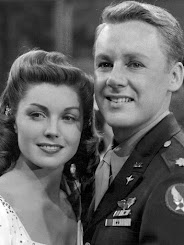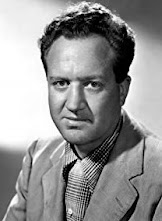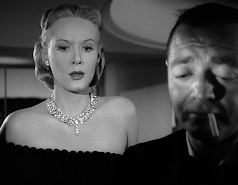The inaugural
Columbus Moving Picture Show will take place May 26 - 29, 2022, at the Renaissance Columbus Downtown Hotel in Columbus, Ohio. The festival will feature 16mm showings of classic films from the silent days to the 1960s, some of them with live musical accompaniment. There will also be vendors, seminars, and book signings by authors such as Scott Eyman (
Cary Grant: A Brilliant Disguise) and James D’Arc (
When Hollywood Came to Utah). Festival organizer Samantha Glasser recently took time out of her busy schedule to talk with us about the Columbus Moving Picture Show.
Café: Over 35 films, short features, and a Red Ryder serial will be shown from Thursday through Sunday. What are some of the titles you’re most excited about presenting?
Samantha Glasser: I always get excited by the rarest titles, the things you can't see anywhere else. The Silent Fragments program is a collection of three silent films that only exist partially due to decomposition. They survive because the films were issued as cut-downs on 16mm and collectors of that format held the only copies. I'm also looking forward to
Stork Bites Man, which is based on a book I enjoyed a lot about a man's perspective of a pregnancy. It stars Jackie Cooper, who was once in Our Gang, and it was through that series that I discovered classic movies in the first place.
Café: Which silent films will feature live musical accompaniment?
SG: All of the silent films feature live piano accompaniment by either David Drazin or Dr. Philip Carli.
Café: What are the seminars that are being presented?
SG: Ed Hulse will present a preview of his forthcoming book
Wage Slaves in the Dream Factory, which is about the low-budget studios that operated during the studio era. Eric Grayson has been working for years to compile and restore the
King of the Kongo serial starring Boris Karloff and will give a presentation on that process. Nick Santa Maria has an upcoming book titled
The Annotated Abbott and Costello and he will give a presentation on that beloved comedy team. Nancy Vass's mother was an actress in a local film company called Kelly's Klean Komedies in the silent movie era, and she will present some of her mother's mementos.
Café: What kinds of movie memorabilia will be offered for purchase in the vendor room?
SG: The dealer room is really a treasure chest of movie-related items. You can find original movie posters (one-sheets, half sheets, window cards, inserts, lobby cards, heralds), pressbooks, stills, autographs, books, movie magazines, 8mm and 16mm films, laserdiscs, DVDs and Blu-rays, kitsch, and more.
Café: Does the $65 weekend pass cover the cost of everything?
SG: The weekend pass covers everything except the t-shirt. It gives you access to the film screenings, the dealer room, the book signings and the seminars and comes with a free program book.
Café: Can festival attendees get a discount for hotel rooms and, if so, must they book their rooms by a certain date?
SG: Yes, they can register at $144 per night at the Renaissance Downtown Hotel, but only until May 3rd.
Café: What inspired you and the other organizers to launch the Columbus Moving Picture Show?
SG: I have attended Cinevent for years and worked as a staff member for the last several. Michael Haynes asked me if I would be interested in taking over the show someday and I said yes. Someday came sooner rather than later.
Café: I saw where you named Mary Pickford, Van Johnson, Dick Powell, and Betty Hutton as some of your favorite classic movie stars. Name a favorite film for each one! (I love Dick Powell in Murder, My Sweet…but also really like Cornered and You Never Can Tell).
 |
Esther Williams and Van Johnson
in Thrill of a Romance. |
SG: My Best Girl is always the silent movie I recommend to people because it is sweet and relatively modern so people forget they're watching a silent film. I love Van Johnson in
Thrill of a Romance; that's my go-to if I need a pick-me-up.
Gold Diggers of 1933 is an incredibly fun movie all around, and Dick sings some great songs in it. Betty Hutton is fantastic in
Annie Get Your Gun. I love her fearlessness in front of the camera. I know many people like to say Betty is no Judy Garland, but I don't think Judy could have been as funny as Betty is in that movie.
Café: Finally, where can Café readers learn more about the Columbus Moving Picture Show?
SG: Check out our website https://www.columbusmovingpictureshow.com!
Café: Thanks so much for talking with us, Samantha.















